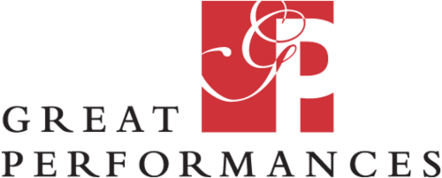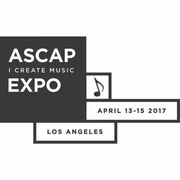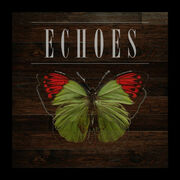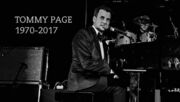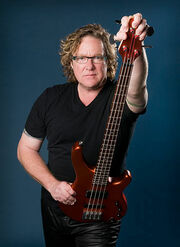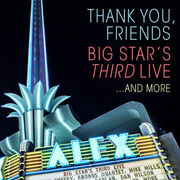New York, NY (Top40 Charts) Gustavo Dudamel accents the colors, rhythms, and passion of music by leading composers from Argentina in this invigorating evening under the stars on Dudamel Conducts Tangos Under the Stars with the LA Phil -- recorded at the Hollywood Bowl in August - coming to Great Performances Friday, March 31 at 9 p.m. on PBS. (Check local listings.)
"Temperatures cooled off last night but the music making remained hot as Gustavo Dudamel began his final week this summer at Hollywood Bowl," reported Robert D.
Thomas of the Southern California News Group the day after the concert.
With guitarist
Angel Romero, bandoneon player Seth Asarnow, and dancers from Tango Buenos Aires, maestro Dudamel leads the Los Angeles Philharmonic in works by the Astor Piazzolla, once described by Stephen
Holden in The New York Times as "the world's foremost composer of tango music," symphonic composer Alberto Ginastera (who was Piazzolla's teacher), and film score composer
Lalo Schifrin ("Mission Impossible"), a friend of the late Piazzolla.
Newly filmed interviews with Dudamel, Schifrin and
Romero are interspersed throughout the musical program, together with archival footage of Piazzolla.
Schifrin's Concierto de la Amistad (Concerto of Friendship), a world premiere performance, is a follow-up to his Concerto for Guitar and Orchestra premiered by guitarist
Angel Romero in 1984 at the Bowl. The composer wrote the latest guitar concerto especially for his long-time friend Romero.
"The structure is three movements, and sometimes sonata form, sometimes theme and variations… it's like a journey," says Schifrin in the program. "I start with a kind of dance … a kind of dance of the Middle Ages combined with 21st or 20th century music. So in that sense, it's a journey. But it's a journey also in terms of geography, because it has African elements, obviously European - especially Spanish - European elements, South American elements all over."
Among the leading lights of 20th-century concert music in South America, Argentina's Alberto Ginastera is acknowledged for his successful blending of indigenous music with the more rigorous elements of European art music. The four dances from Ginastera's ballet Estancia were inspired by the folklore of Argentina: the movements signifying the field hands, the wheat field, the cattle men, and the Argentine cowboys (gauchos).
Estancia, written in 1941 on a commission from American Ballet Caravan, was intended as a "ballet in one act and five scenes based on Argentine country life," originally including spoken and sung elements. Because of problems on the part of Ballet Caravan, the ballet itself went unperformed until 1952, but the suite of four dances from the score was introduced at the venerable Teatro Coloacuten in Buenos Aires in 1943.
Piazzolla, for his part, wrote a more modern harmonic, melodic, and rhythmic tango, as we hear in his Tangazo, and later, in his most famous tangos including "La muerte del angel," "Adios nonino," and "Libertango."
Born in Mar del Plata, Piazzolla immigrated to New York with his family, where he grew up on the Lower East Side. Sports and other activities interested him far more than did the tango, the music of his father. The gift of a bandoneón began to change that, however.
He was 16 years old when his family returned to Argentina, and he was soon working regularly in the best tango orchestras. In 1944 Piazzolla formed his own ensemble, the Orquesta del 46, to play his own compositions. At that time he also was studying composition with Ginastera. A symphony he composed in 1954 for the Buenos Aires Philharmonic earned him a scholarship to study in Paris with Nadia Boulanger, who advised him to cultivate the tango as his true mode of expression.
Schifrin admiringly calls Piazzolla "the voice of the tango," and Dudamel observes that Piazzolla created a new form of the genre: "very modern, harmonically, melodically, rhythmically, it is very, very modern and it's only Piazzolla."
From the 1960s comes La muerte del ángel (from a series of 'angel' pieces), one of the distinctive pieces with which Piazzolla shook the conservative world of tango. "Nuevo tango = tango + tragedy + comedy + whorehouse" was an equation Piazzolla used to define his new direction. To that could be added greater harmonic sophistication and an elusive jazz swing. The selection of four tangos on the program are accompanied by dancers from the Tango Buenos Aires troupe.
Program
The Agricultural Workers
The Wheat Dance
The Cattle Men
Malambo
A production of THIRTEEN Productions LLC for WNET, Bernhard Fleischer Moving Images, ZDF/ARTE, and C MAJOR Entertainment, Dudamel Conducts Tangos Under the Stars with the LA Phil was produced by Bernhard Fleischer and directed by Michael Beyer. For Great Performances, John Walker is producer, Bill O'Donnell is series producer;
David Horn is executive producer.
Great Performances is produced by THIRTEEN PRODUCTIONS LLC for WNET, one of America's most prolific and respected public media providers. Throughout its more than 40 year history on public television, Great Performances has provided viewers across the country with an unparalleled showcase of the best in all genres of the performing arts, serving as America's most prestigious and enduring broadcaster of cultural programming.
Major support for Great Performances is provided by The Joseph and Robert Cornell Memorial Foundation, the Anna-Maria and Stephen Kellen Arts Fund, the Irene Diamond Fund, the LuEsther T. Mertz Charitable Trust, The
Agnes Varis Trust, The Starr Foundation, the Kate W.
Cassidy Foundation,
Ellen and
James S. Marcus, The Philip and Janice Levin Foundation, The Abra Prentice Foundation, and PBS.
Visit Great Performances Online at www.pbs.org/gperf for additional information about this and other programs.
About WNET
WNET is America's flagship PBS station and parent company of THIRTEEN and WLIW21. WNET also operates NJTV, the statewide public media network in New Jersey. Through its broadcast channels, three cable services (KidsThirteen, Create and World) and online streaming sites, WNET brings quality arts, education and public affairs programming to more than five million viewers each week. WNET produces and presents such acclaimed PBS series as Nature, Great Performances, American Masters, PBS NewsHour Weekend, Charlie Rose and a range of documentaries, children's programs, and local news and cultural offerings. WNET's groundbreaking series for children and young adults include Get the Math, Oh Noah! and Cyberchase as well as Mission US, the award-winning interactive history game. WNET highlights the tri-state's unique culture and diverse communities through NYC-ARTS, Reel 13, NJTV News with Mary Alice Williams and MetroFocus, the daily multi-platform news magazine focusing on the New York region. In addition, WNET produces online-only programming including the award-winning series about gender identity, First Person, and an intergenerational look at tech and pop culture, The Chatterbox with
Kevin and Grandma Lill. In 2015, THIRTEEN launched Passport, an online streaming service which allows members to see new and archival THIRTEEN and PBS programming anytime, anywhere: www.thirteen.org/passport.
The Hollywood Bowl
One of the largest natural amphitheaters in the world, with a seating capacity of nearly 18,000, the Hollywood Bowl has been the summer home of the Los Angeles Philharmonic since its official opening in 1922, and plays host to the finest artists from all genres of music, offering something for everyone. It remains one of the best deals anywhere in Los Angeles; to this day, $1 buys a seat at the top of the Bowl for many classical and jazz performances. In February 2017, the Hollywood Bowl was named Best Major Outdoor Concert Venue for the thirteenth year in a row at the 28th Annual Pollstar Awards. For millions of music lovers across Southern California, the Hollywood Bowl is synonymous with summer. www.HollywoodBowl.com
The Los Angeles Philharmonic Association
Under the vibrant leadership of
Music Director & Artistic
Director Gustavo Dudamel, the LA Phil presents an inspiring array of music from all genres - orchestral, chamber and Baroque music, organ and celebrity recitals, new music, jazz, world music and pop - at two of L.A.'s iconic venues, Walt Disney Concert Hall (www.laphil.com) and the Hollywood Bowl (www.HollywoodBowl.com). The LA Phil's season extends from
September through June at Walt Disney Concert Hall, and throughout the summer at the Hollywood Bowl. With the preeminent Los Angeles Philharmonic at the foundation of its offerings, the LA Phil aims to enrich and transform lives through music, with a robust mix of artistic, education and community programs.















